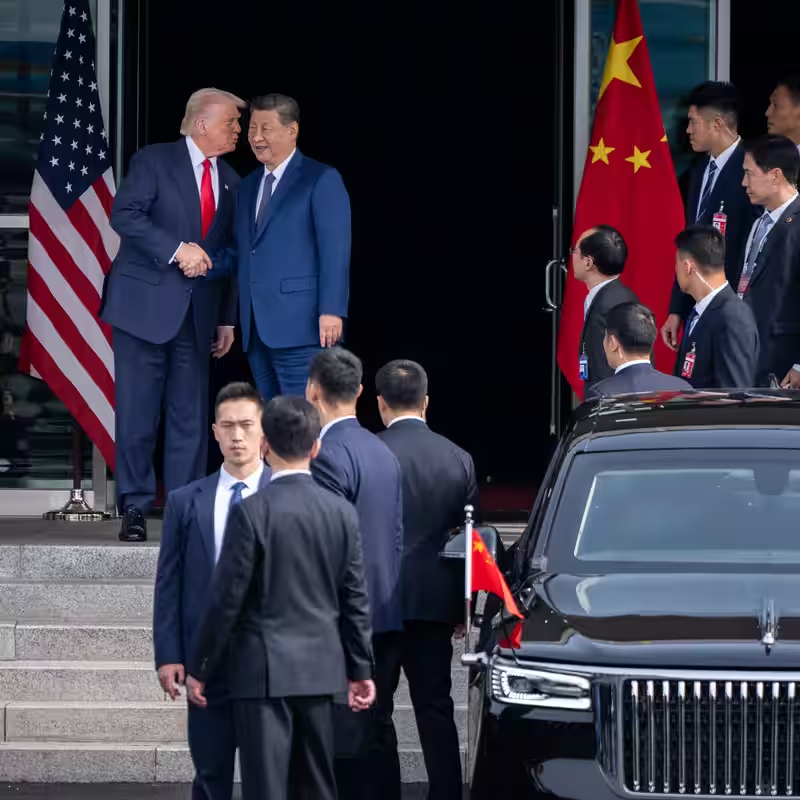Trump-Xi Trade Truce: A Fragile Peace in the Economic Cold War
In a surprising move that has sent ripples through global markets, U.S. President Donald Trump and Chinese President Xi Jinping have agreed to a one-year truce in their protracted trade war. The deal, announced on October 30, 2025, centers on two critical fronts: China’s control over rare earth metals and U.S. tariffs targeting the fentanyl crisis.
What’s in the Deal?
The agreement is a classic quid pro quo:
- China has agreed to suspend for one year its planned restrictions on the export of rare earth metals. These 17 elements are essential for manufacturing everything from smartphones and electric vehicles to advanced military hardware .
- The United States will halve its so-called “fentanyl-related” tariffs on Chinese goods, reducing them from 20% to 10% . This move is a significant concession aimed at curbing the flow of precursor chemicals used to manufacture the deadly synthetic opioid.
Why Rare Earth Metals Matter
China currently dominates the global supply chain for rare earth elements, controlling over 80% of the world’s processing capacity. Any restriction on their export is a powerful economic lever. By agreeing to a one-year delay on new export limits, Beijing has offered a crucial olive branch to American manufacturers and defense contractors who rely on these materials .
The Fentanyl Factor
The U.S. has long accused China of being a primary source of the chemical precursors used to produce fentanyl, which is fueling a devastating public health crisis. The original 20% tariff was a direct response to this. President Trump stated that President Xi has pledged to “work very hard” to stem these chemical flows, justifying the tariff reduction to 10% .
A Truce, Not a Treaty
Analysts are quick to point out that this is a temporary ceasefire, not a lasting peace. The underlying structural issues of the U.S.-China trade relationship—intellectual property theft, forced technology transfers, and massive trade imbalances—remain unresolved. As one expert noted, this summit produced “less a deal, more an uneasy truce” .
Market and Political Reactions
Global stock markets reacted positively to the news, with tech and manufacturing sectors seeing the most significant gains. However, political reactions are mixed. Critics in the U.S. argue the deal doesn’t go far enough to address the fentanyl crisis, while hardliners in China see the rare earth concession as a sign of weakness.
What’s Next?
The success of this one-year truce hinges on mutual trust and verification—a commodity in short supply between the two superpowers. Over the next 12 months, the world will be watching closely to see if this fragile agreement can hold or if the trade war will reignite with even greater intensity.
Sources
- The New York Times: Trump and Xi, Hoping to Ease Trade War, Agree to 1-Year Truce
- Web search results from October 31, 2025




